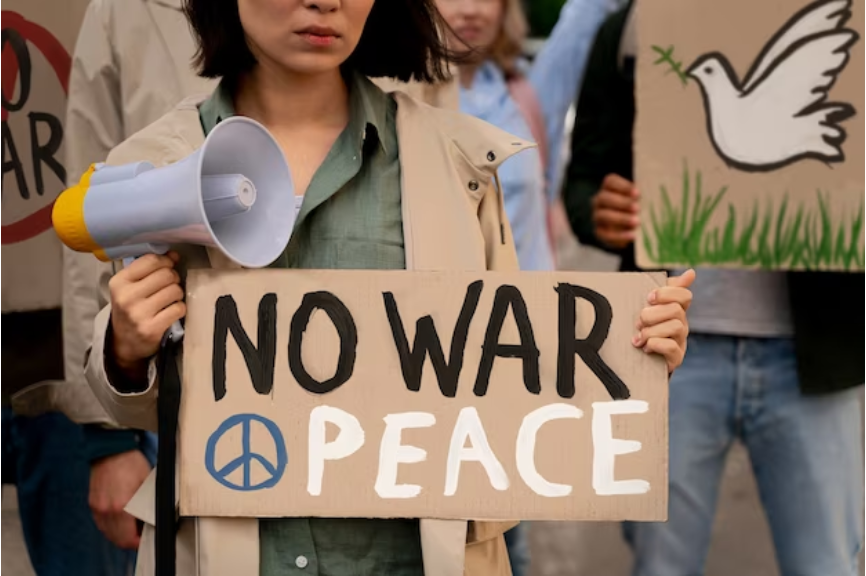Defining international laws surrounding war and its effect on nations

War is a big problem that has been with people for a very long time. It has killed a lot of people, wrecked towns and infrastructure, and left societies with deep scars. Due to the terrible effects of war, there are now rules about how countries should act during armed fights. With these rules, the worst parts of war might not happen and it would be less damaging.
Foreign war laws are a very important problem in the United States. The United States has been in a lot of fights, from World War II to the most recent ones in Iraq and Afghanistan. As one of the most important countries in the world, the US has had a big impact on how international rules about war are made and followed.
In this piece, we’ll talk about what the international rules are about war and how they affect different countries. We will talk about what the US did to make and enforce these rules, as well as what people think about how they should be used. We will also talk about how countries can make sure these rules are followed and stop wars from starting. By the end of this article, you will know more about why international rules about war are important and how they affect the United States.
How does war work on a global scale?
International war laws are the rules and principles that tell countries how to act when they are at war. These rules are meant to protect bystanders, stop people from suffering needlessly, and limit the damage that war does. They apply to all countries that fight wars, even if they haven’t signed any special agreements.
Treaties, agreements, and what people have always done make up the international rules about war. Countries talk with each other on a diplomatic level to come to these formal deals. They make sure that everyone agrees on what the rules of war are. Humanitarian law rules are often used to make them. These rules are meant to protect bystanders and people who are not fighting.
The goal of the laws that guide war on a global scale is to tell countries how they should act when they are at war. They say how prisoners of war should be handled, how civilians and people who aren’t fighting should be protected, and which weapons and methods can’t be used. The main goal of these laws is to stop people from suffering needlessly and to limit the damage that war causes, while still letting countries protect themselves and reach their military goals.
What do the rules of war mean for countries that are at war?
Countries at war are affected a lot by international rules. They tell countries how to act during armed battles and can help stop unnecessary pain and damage caused by war. These rules say how prisoners of war should be treated, how civilians and other people who aren’t fighting should be protected, and what weapons and methods can’t be used.
International laws tell countries what to do in war by setting clear rules of engagement and limiting the use of force to certain military goals. They require countries to follow the rules of humanitarian law and keep citizens and people who aren’t fighting as safe as possible during armed wars.
Using toxic weapons like Agent Orange during the Vietnam War was against international law. During the Gulf War, Iraq broke the law by burning things like water treatment plants that were used by civilians. In both cases, international rules had a big impact on how these countries ran their military actions and how they treated civilians and people who were not in the military.
How does international law affect the US?
Around the conflict?
Foreign rules about war have changed a lot over time because of the United States. As a big country in the world and one of the first members of the UN, the US has helped make and enforce these rules. The US has signed and agreed to a lot of laws and conventions about war, like the Geneva Conventions and the Chemical Weapons Convention.
It’s important that the USA follows these rules because it shows other countries how to do it and shows that international law is real. The US’s commitment to these laws also helps protect American troops and citizens by setting clear rules of engagement and limiting the use of force to specific military goals.
The use of drone strikes in Afghanistan and Pakistan has led to questions about whether it is acceptable to kill people on purpose and how to keep civilians safe. This is an example of how international rules have affected the US during a war. The US was also attacked for how it treated prisoners of war during the Iraq War. This made the US government change its policies and look more closely at how the military worked.
What’s wrong with the rules that guide war at the international level?
There are a lot of different ideas about how wars should be fought around the world. Since there is no outside group with the power to enforce these rules, this is one of the biggest points of disagreement. Another point of disagreement is how people understand and use these rules. Some countries say they are too strict and limit their ability to protect themselves.
Syria is accused of using chemical weapons against civilians, and Russia is accused of breaking the Geneva Conventions in its war with Ukraine. These are both cases of countries that have broken international rules about war. If you break these rules, other countries or international groups could punish you, cut you off politically, or even take military action.
There are also arguments about the actions of non-state actors like terrorist groups, which are not bound by international law and can cause a lot of damage and pain during armed battles. These differences show how hard it is to make sure that international war rules are clear and followed.
How can countries be sure to follow the rules of other countries?
Around the conflict?
It is hard and never-ending work to make sure that worldwide rules about war are followed. Setting up foreign groups like the International Criminal Court and the International Committee of the Red Cross to watch over and police these laws is one way to make sure that people follow the rules. If a person or country breaks an international rule about war, these groups can look into it and take them to court.
The US does a lot to make sure that international rules about war are followed, both on its own and by joining international groups. The US military has its own legal system to make sure these laws are followed, and the US government has helped international groups like the UN support and enforce these laws.
Overall, it takes constant vigilance and teamwork between countries and international groups to make sure that international laws about war are followed. It also needs a commitment to humanitarian law and the protection of civilians and people who are not fighting during armed wars.
Conclusion
In the end, international rules about war are important guides for how countries should behave during armed conflicts. These laws are based on treaties, deals, and customary rules that set clear rules of engagement and limit the use of force to certain military goals. The USA has done a lot to make and enforce these laws, showing other countries how to do it right and showing that international law is real.
But it is still hard to make sure that international rules about war are followed because some countries and non-state players keep arguing and breaking the rules. To deal with these problems, it’s important for countries to keep helping foreign organisations like the International Criminal Court and the International Committee of the Red Cross make sure these rules are followed.
As an important country in the world, the USA has a responsibility to defend and promote international laws about war, both through its own actions and by joining international organisations. By doing this, the USA can help protect American troops and citizens, support peace and security, and make the world a more fair and kind place.
Read More You May Like:
- Analyzing the role of the UN in promoting peace and preventing conflicts
- Understanding the consequences of war on society
- The impact of modern technology on modern warfare
- Investigating the aftermath of war and peacebuilding efforts
- How war can result in severe humanitarian crises








